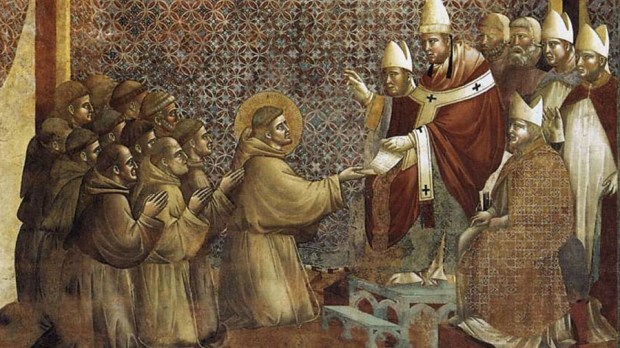The High Middle Ages, Lucie Laumonier explains, “brought an unprecedented explosion of Christian ministry to those in physical distress,” often referred to as the charitable revolution. When mendicant friars (mainly Franciscans and Dominicans, but also the Hospitallers) took on vows of poverty to imitate Christ, those who were involuntarily poor were seen differently: They provided the most fortunate with an opportunity to get involved in charitable work, perform penitential acts of almsgiving, and be (literally) hospitable.
Medieval charity
In an article published in issue 101 of Christian History, Laumonier explains that “the 12th and 13th centuries birthed hundreds of leper houses and hospitals for the sick and poor, along with hospitaller and military orders, lay confraternities (organizations dedicated to charity, mutual support, and religious devotion), monasteries, and penitential groups doing charitable work,” bringing about the so-called “golden age” of medieval hospitals.
Both monasteries and episcopal sees founded most of these institutions, sustaining them with their own funds, but laypeople (nobles and townsfolk alike) shared the load, and often took their own initiatives, inspired by the traditional corporal works of mercy. But, as Laumonier asks, “what did this cultural and moral change look like on the ground, and what caused it?”
Christ’s vicars on earth
This is not to say charity or charitable institutions were nowhere to be found before the 12th century. However, the birth of mendicant, “begging” orders – first and foremost Franciscans and Dominicans – brought an important shift in attitudes toward the poor. On the one hand, the poor were still stigmatized as undeserving by many, but poverty itself “was increasingly regarded as a sign of divine election, with the poor seen as Christ’s vicars on earth.” Not considered a blessing or a curse, poverty (and illness, hunger, ignorance, and even being imprisoned) was now an opportunity to imitate the good Samaritan. And, as it happens with every opportunity, one could either seize it or not.
“This new concern with the plight of the sick and poor shows up consistently in the testaments (wills) of the period,” Laumonier writes. “Among 13th-century testaments in Flanders, 85% included charitable bequests to aid lepers, hospitals, widows, and the ransoming of captives. Forty-four percent included a bequest to at least one hospital. Similarly, in east-central France, two-thirds of all wills from c. 1300 included distributions of coin and/or food to the poor.”



